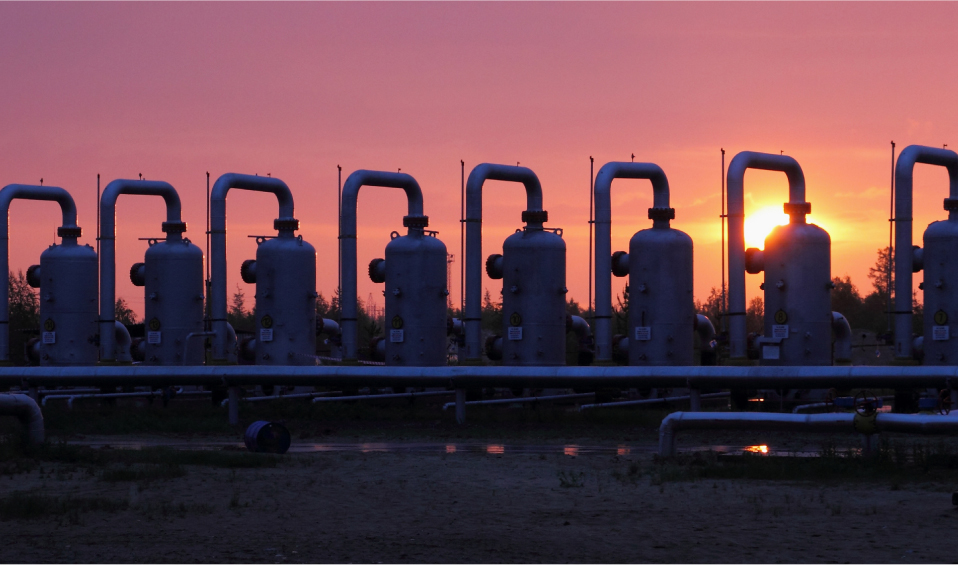
Thanks to ESCP Business School's Energy Management Centre wide network in the academic and business communities, our views on energy news give you comprehensive insight into energy issues.
Please join us...
Risk, be it financial, political or military, is and has been inherent within the oil industries' activities. The oil majors have learnt this the hard way through numerous cases where they experienced these risks materialising, eliminating the value of their investments in the process. Nevertheless, as in most industries, the risks are justified by the benefits and in the case of big oil & gas, experience shows that the benefits are high.
The European Commission recently marked as a Project of Common Interest (PCI) the pipeline that will link the Greek and Cypriot deposits (East Med Pipeline), lifting the hopes of both Athens and Nicosia about the possibilities of seeing this project materialising.
The project seeks the construction a pipeline connecting the Leviathan field offshore Israel, to Cyprus and the eastern part of the Island of Crete in Greece. In order to connect the supply of this pipeline to the EU market alternate routes were discussed, including connections from Crete to the Trans-Adriatic Pipeline (TAP), the Interconnector Greece-Bulgaria (IGB) and the Revythousa LNG terminal close to Athens.
As discussed in the recent international conference organised in Athens by the Energy Management Centre at ESCP Europe Business School and the Greek Energy Forum, the European Union, through its 2030 Energy Targets, has provided with a blue print of its vision of the energy industry. It does so by defining its development and activities within the EU territories over the next 15 years, and beyond.
Issues such as those of security of supply, energy efficiency, carbon emissions, renewables and many others are covered in different depths and levels of clarity within these Targets. Targets, whose importance has been highlighted by the recent geopolitical developments and the market dynamics of the energy industry.
The Greek authorities officially announced the 2014 offshore exploration bidding round for 20 offshore blocks in the Ionian Sea and on the South of Crete in a conference that took place in London earlier this summer, with the support of the Greek Energy Forum. As expected, this event was received with great levels of excitement. The various publications in the aftermath of this event however did not highlight the display of commitment from the Greek authorities in on this endeavour, which has been also an achievement in itself for a country looking to re-enter the international hydrocarbon exploration arena. The clarity of the structure of the announced bidding round, along with the announcement of a well-defined timeline and coupled with an authoritative delivery to the audience, set the ground for a successful bidding round.
The developments following this event have not failed to maintain this momentum. Demonstrating commitment to the announced targets, the hydrocarbon exploration tenders have been signed for publication within August 2014, following the announced timeline to the letter and gaining thus credibility points in the market. Nevertheless, we still have a long way to go before this bidding round can be branded as a success, but such developments build trust.
Africa, with its untapped markets and abundant natural recourses, has been the common secret amongst many energy investors over the past couple of decades. Its high growth rates, rapidly growing population and unexploited resources have marked it as the Promised Land for various businessmen. However, results so far have been widely variable.
In trying to explain why Africa has not proved to satisfy the investors' dream, one does not have to go further than the application of simple demand and supply economics. The African population is estimated to more than double itself by 2050. At the same time, and while the rest of the world is battling to get past the effects of the recent recession, GDP growth rates of 5-8% have been common in many Sub Saharan African countries. Growth rates, which are mostly driven by economic activity in the rapidly urbanised cities. They also illustrate the development of a new working class that is also growing rapidly, along with its purchasing power and its corresponding demands for higher energy consumption.




527 Finchley Road
London NW3 7BG
United Kingdom
Tel: +44 (0)20 7443 8800
Fax: +44 (0)20 7443 8845
E-mail: [email protected]










